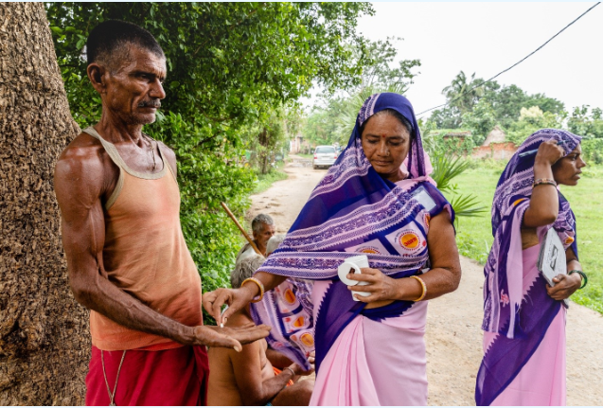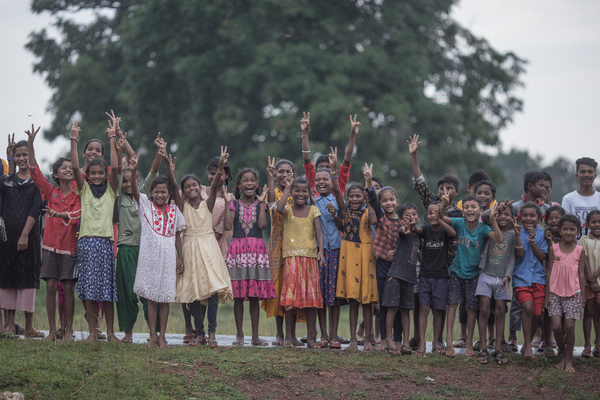main navigation start
Toggle navigation
main content start
Search Filters
Sharex Sites List
Language
Topics
Topics
- Accountability (3)
- Adolescents (39)
- Birth Registration (1)
- Breastfeeding (20)
- Cash Transfer (3)
- Child and youth participation (19)
- Child Health (236)
- Child labour (4)
- Child marriage (18)
- Child Poverty (10)
- Child Protection (50)
- Children in alternative care (5)
- Child Rights (17)
- Climate, Energy and Environment (56)
- Community engagement (89)
- Convention on Child Rights (2)
- COVID-19 (122)
- Data/Evidence (115)
- Disability (95)
- Disaster Risk Reduction (14)
- Discrimination (2)
- Early Childhood Development (55)
- Education (28)
- Emergency Response (2)
- Female genital mutilation (25)
- Gender (51)
- Gender Based Violence (22)
- HIV/AIDS (41)
- Humanitarian Response (10)
- Immunization (131)
- Infant and Young Child Nutrition (20)
- Innovation (35)
- Justice for children (4)
- Knowledge Exchange and Sharing (35)
- Knowledge Management (42)
- Legal identity (3)
- Maternal Health (56)
- Mental Health (26)
- Migrant and displaced children (12)
- Migration (10)
- Newborn Health (60)
- Nutrition (160)
- Online protection (1)
- Partnerships (8)
- Peacebuilding (2)
- Polio (6)
- Poverty (1)
- Psycosocial support (7)
- Sexual exploitation and abuse (11)
- Sexual Violence (14)
- Social Behaviour Change (59)
- Social Policy (21)
- Social Protection (15)
- Social service workforce (81)
- Sustainable Development Goals (8)
- Technology for Development (13)
- (-) UNICEF Programming (37)
- UN Water Conference (6)
- Urban (8)
- Violence against children and women (20)
- Violence in schools (2)
- Water. Sanitation and Hygiene (208)
Resource Type
Document Type
- Academic journal articles (including pre-print submissions) (4)
- Agreements (0)
- Case studies, lessons learned, field notes (4)
- Corporate reporting (0)
- Data set (0)
- Evaluations (0)
- Forms and templates (0)
- Guidelines/SOPs/checklists (1)
- Human Interest Stories (3)
- Major publication (flagship, advocacy etc.) (1)
- Meeting documents and reports (0)
- Mobile Application (0)
- Monitoring reports (0)
- Newsletters (1)
- None (1)
- Online learning/e-learning course (0)
- Other technical publications and reports (1)
- Policy brief/briefing notes/fact sheets/FAQs (1)
- Posters, brochures, pamphlets, flyers (0)
- Presentation (0)
- Research report (10)
- Situation analyses (0)
- Situation reports (0)
- Speeches and Statements (0)
- Staff working paper/discussion paper (0)
- Strategies and Frameworks (1)
- Systematic reviews, knowledge mappings, evidence synthesis (1)
- Technical note (6)
- Toolkit/Toolbox (1)
- Training materials (1)
- Video (0)
Country
Published Date Range

Technical note
There is a strong and direct relationship between undernutrition and the disease caused by infectious organisms. It is a vicious cycle where malnutrition makes a person more susceptible to infection, ...

Technical note
Improving nutrition for women and children remains a high public health priority in India. Women's groups are becoming important in delivering health and nutrition interventions while continuing to ad...

Technical note
Undernutrition among children less than 5 years is a key factor for child morbidity and mortality. In India, severe wasting, is seen in 8 per cent of children under the age of 5 years. (NFHS-5, 2019-2...

Technical note
Ensuring women have nutritious diets, adequate services and care are fundamental for the survival and well-being of mothers and their children. Pregnancy is one of the most critical phases in a woman’...

Systematic reviews, knowledge mappings, evidence synthesis
The lists of indicators within this spreadsheet have been developed as part of a broader menu of social and behaviour change (SBC) indicators for different UNICEF sectors and crosscutting programme ar...

Research report
Objective: We carried out a secondary analysis of data of Comprehensive National Nutrition Survey 2016-18 to analyze the prevalence and predictors of vitamin D deficiency (VDD) among Indian children a...

Research report
A set of global nutrition targets for maternal and child nutrition together with diet-related non-communicable diseases (NCDs) to be achieved by 2025 was endorsed by the World Health Assembly in 2013....

Research report
Healthy diets are necessary for optimal growth and to carry out daily mental and physical tasks. Unhealthy diets drive all forms of malnutrition and dietary risks are the number one risk factor global...

Research report
Swabhimaan is a five-year initiative (2016-2021) integrated within the Government of India’s flagship poverty alleviation programme, Deendayal Antyodaya Yojana-National Rural Livelihoods Mission (DAY-...

